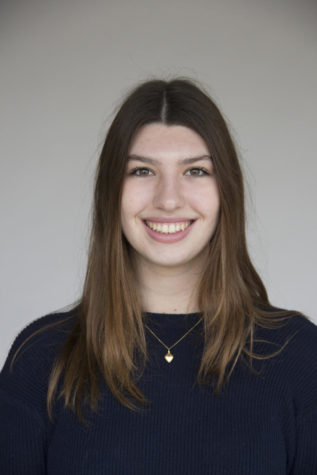You are likely aware that the University of Chicago’s Board of Trustees has tasked a Trustee Search Committee and Faculty Advisory Committee with conducting a far-reaching search for our 14th University president. As Student Government’s Executive Slate, we recently met with Professors Robert Rosner, Erik Hurst, and Michael Franklin of the Faculty Advisory Committee to provide input on the presidential search. Unlike many of our meetings with administrators, we left this meeting optimistic that students have a unique chance to impact the direction of the University.
On our agenda were several matters that the University’s presidents have traditionally neglected, from cultural centers and South Side reparations to graduate student unionization and sustainability leadership. The faculty advisors seemed equal parts energized and intrigued. We pressed them on Greek life recognition. They suggested some novel approaches, such as seeking pro bono legal advice to bolster activists’ interactions with the University. We emphasized the need to uplift marginalized faculty. Rosner, the committee chair, said he had already committed to meeting with #MoreThanDiversity faculty organizers.
The faculty advisors also voiced some priorities of their own. They are interested in a president that engages with the South Side community by departing from the University’s legacy of gentrification and over-policing. We reiterated that the University should address this by speaking with radical community members. They asked our thoughts on building a more diverse and equitable campus. We highlighted the dearth of Black students in the University; at just 4.7% of total students enrolled, it is an abysmal number compared to peer institutions. They agreed that this was unacceptable, especially in the sciences, where many Black students feel unrepresented and unsupported.
We closed our meeting with three selection criteria for the Faculty Advisory Committee to relay to the Trustees. First, with only one woman president, no openly queer presidents, and zero presidents of color in its nearly 130-year history, the next University president cannot be another white, straight male. Whether it chooses a woman, a person of color, a queer person, or another marginalized individual, it is imperative that the University break with its tradition of visually and ideologically stale leadership.
Second, the next president must be visible and accessible to students. For one hour in 2018, President Zimmer broke a roughly five-year hiatus from public student engagement to participate in a moderated town hall. Our community deserves better: a president that students can see, know, and understand.
Finally, the next president must commit to engaging with student activists in a way that is honest, attentive, and responsive. Over the past four years, we have seen escalating tensions between students and administrators over Graduate Students United (GSU) recognition, student cultural centers, and University of Chicago Police Department (UCPD) abolition. No matter the president’s position on these issues, they cannot continue to ignore student voices. Levi Hall cannot remain an ivory tower.
The faculty advisors who were present agreed that these criteria cannot go unconsidered. And although they could not comment on the exact details of the presidential search, we are confident that they are invested in addressing student concerns. To this end, we encourage readers to fill out our survey on the presidential search. We will be collecting responses through January 31. We plan to meet with the Faculty Advisory Committee in February to report our findings.
We understand that a responsive Faculty Advisory Committee does not necessarily mean a responsive Board of Trustees. As the Maroon Editorial Board noted in November, the interests of wealthy donors frequently grate against that of students’, while earlier Maroon reporting has unearthed the top-level erosion of faculty governance. Even so, the Faculty Advisory Committee’s wide-ranging engagement with the University community demonstrates a significant degree of faculty latitude and influence in the presidential search process. The interests of faculty and students are often aligned, and it is clear that the faculty advisors want to hear our aspirations and our fears. Our community is at an inflection point. We should seize this historic opportunity to set the University of Chicago on the right path.
The authors are the members of the Student Government Executive Slate, ENGAGE.








